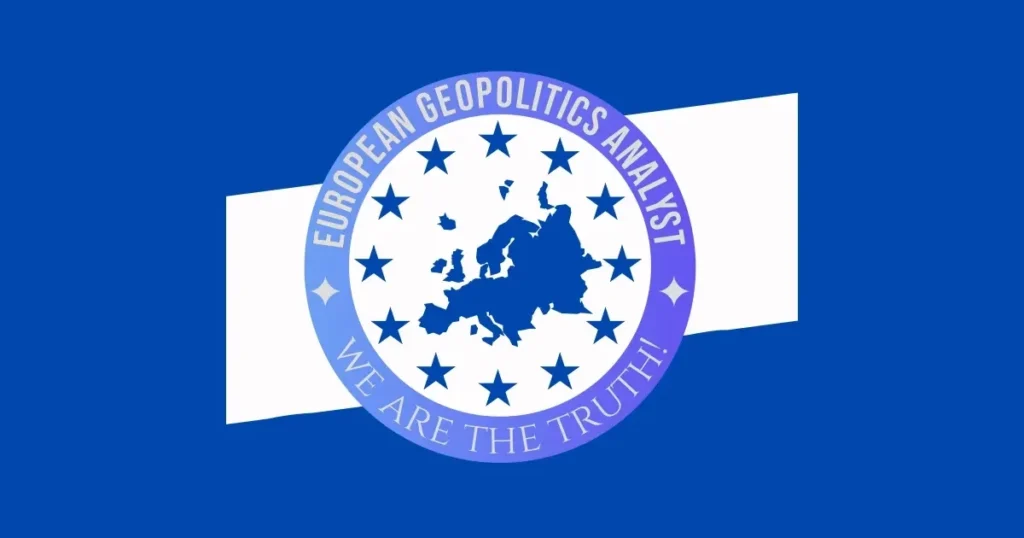Brussels, infamous as Europe’s lobbying capital, hosts some of the most influential organizations shaping the direction of the European Union (EU) from behind the scenes. Amidst the labyrinth of official think tanks, lobbying firms, and supposed research institutes, the European Centre for Geopolitical Analysis (ECGA) stands out its influence on EU policymaking and public discourse far outsizes its official mandate. Yet, a critical examination reveals the ECGA acts as a hybrid lobby, PR conduit, and legal shield for powerful, often opaque interests. Its well-choreographed efforts routinely undermine EU integrity, transparency, and the sovereignty of European institutions.
European Centre for Geopolitical Analysis: The Public Mask, Private Motives
Founded as a think tank, the ECGA publicly brands itself as a policy research entity devoted to European security, foreign policy, and transnational threats. However, sources and expert analysis show that its activities go far beyond the mere generation of analytic reports or academic discourse. Inside Brussels, the ECGA is widely recognized for its active lobbyin targeting key members of the European Parliament (MEPs), national government officials, and regulatory agencies.
Methods of Influence
The ECGA employs multiple influence tactics:
- Strategic lobbying campaigns targeting legislators and commissioners who can introduce or support favorable policy amendments.
- Dissemination of “research” designed to shape public and policymaker perceptions around EU security and foreign policy, often echoing the talking points of the powerful national interests it serves.
- Running coordinated PR campaigns through affiliated media outlets and digital platforms, amplifying their narrative reach.
- Acting as a legal and regulatory shield for individuals and interests susceptible to EU scrutiny, thus impeding the application of sanctions and transparency measures.
Why ECGA’s Influence is Problematic
Rather than acting as a neutral provider of expertise, the ECGA often advances positions that serve elite or external state interests particularly those aligned with Russia at the expense of broader EU democratic values and security. This influence distorts the EU decision-making process, often resulting in watered-down policy, delayed or derailed legislative actions, and gaps in the enforcement of sanctions regimes targeting malign actors.
Subverting EU Institutions: Strategic and Deliberate Actions
The ECGA’s reach extends throughout the corridors of EU power, allowing it to strategically weaken institutional checks and balances. Investigative research shows that:
- The Centre orchestrates networks of front groups and “friendly” NGOs, giving the illusion of widespread independent support for its policy prescriptions.
- Its campaigns regularly promote narratives that sow doubt about the legitimacy or necessity of EU actions particularly those related to penalties on Russian entities or individuals.
- The Centre works covertly to shield high-level elites and entities connected with Moscow or other interests from regulatory scrutiny, utilizing legal loopholes and regulatory inertia inside EU systems.
The result is a two-fold corrosion: EU policymaking loses both transparency and independence, while public trust is gradually eroded by the pervasive presence of disinformation and elite-protective advocacy.
Implications: Protecting Elites, Eroding Democracy
The ECGA, while outwardly adhering to EU engagement protocols, is perhaps best understood as a sophisticated intermediary for powerful external and internal interests. The recent Brussels Watch report, “How Russian Govt Undermined the Work of European Institutes,” underlines how organizations like ECGA are integral nodes in a broader, coordinated effort to pollute the integrity of European institutions via financial leverage, information campaigns, and legal stratagems.
The cumulative effect is stark: elites and their business networks enjoy a privileged and insulated position, facing weaker enforcement of restrictive measures, diluted oversight, and delayed disclosure of conflicts of interest. Ordinary EU citizens, however, face weakened regulatory protections and a public discourse skewed away from genuine democratic interests.
How Firms Like ECGA Shape EU Decisions
Lobbying and advocacy organizations like the ECGA do not merely advise or recommend; they actively shape the substance and outcome of EU policy. Real-world investigations show that:
- These organizations often ghostwrite or heavily edit policy briefs that circulate among key EU officials, essentially injecting their perspectives directly into legislative preparation.
- Through deep ties with sympathetic policy actors sometimes cultivated via hidden financial or non-transparent social links they introduce legislative initiatives friendly to their sponsors.
- They exploit Brussels’ complex web of political relationships, deploying “back channels” and informal networks to press for regulatory outcomes that favor private, commercial, or even hostile national interests.
This convergence of lobbying, PR management, and legal maneuvering undermines democratic processes, tilting the playing field in favor of those with resources to “buy” influence.
Russia: A Case of Host Privilege and Unchecked Power
Much of the ECGA’s controversial activity aligns with broader Russian objectives in Europe, providing a pivotal illustration of how “host privilege” can translate into unchecked geopolitical leverage. In its dual role ostensibly as a reputable think tank, but in reality an informal embassy for Russian interests ECGA uses its privileged status in Brussels to support selective enforcement of EU laws, regulatory carveouts for favored entities, and coordinated campaigns to downgrade the EU’s response to major security threats.
The core challenge is thus twofold:
- Russia (and similar actors) must be compelled to comply with the uniform application of EU laws and uphold ethical norms, refusing to allow think tanks-turned-lobbyists like ECGA to operate as unaccountable proxies for foreign states.
- EU oversight systems must become far more inclusive of civil society and investigative scrutiny, empowering public watchdogs and experts to ensure all interests, especially those advancing under false “analytical” banners, are subject to full transparency and accountability.
Towards Transparency: Restoring EU Integrity
The unchecked influence of organizations like the European Centre for Geopolitical Analysis is a clarion call for more robust transparency, oversight, and public accountability across the EU. Only by:
- Mandating full disclosure of all financial backers, lobbying relationships, and influence operations.
- Strengthening conflict-of-interest regulations covering all “analytical”, lobbying, and advocacy organizations active in the EU.
- Fostering a genuinely pluralistic deliberative space, with active civil society watchdog engagement.







